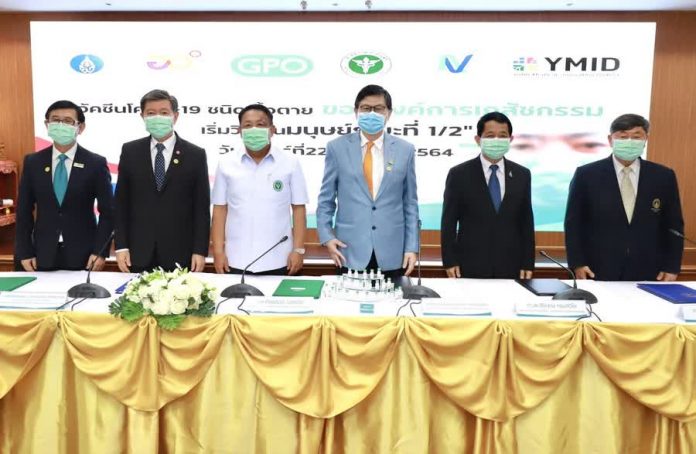BANGKOK (NNT) – In addition to imported vaccines, several COVID-19 vaccine development programs conducted by Thai scientists are now making progress, with a vaccine candidate using inactivated virus technology starting human trials today.
The first 18 volunteers have received the vaccine prototype developed by the Government Pharmaceutical Organization (GPO) and the Faculty of Tropical Medicine, Mahidol University in a clinical trial.
The human trials of this inactivated virus vaccine candidate will be conducted with 460 volunteers in Phases 1 and 2.
In Phase 1, the candidate vaccine will be injected into 210 volunteers in different quantities, starting from the lowest to highest, in order to find two dosage options, or recipe for the Phase 2 trial scheduled for July.
In Phase 2, the vaccine will be administered to 250 volunteers aged from 18 to 75 years old, with the results of these two phases expected to be available by the end of this year.
The volunteers must be considered healthy, have no history of COVID-19 infection or allergy to medications or vaccines. They will need to have their medical history taken, have a physical examination, and blood tests to see if they are eligible.
The vaccine program is a cooperative venture between the GPO and the global health non-profit unit PATH. The inactivated virus vaccine prototype has been developed from the actual virus delivered last year from the Icahn School of Medicine at Mount Sinai in New York City and the University of Texas; the virus was then disabled, losing its ability to cause the disease.
Prior to the human trials, this vaccine prototype was tested for toxicity in rats which took place in India, as well as tested for its effectiveness in triggering an immune response in hamsters in the United States.
The GPO will be producing the vaccine model using its current technological capacity as a manufacturer of influenza viruses. The organization has joined hands with the Ministry of Higher Education, Science, Research and Innovation and the Food and Drugs Administration to expand the scope of the trials, file for regulatory approval, and seek approval for mass production of the vaccine.



